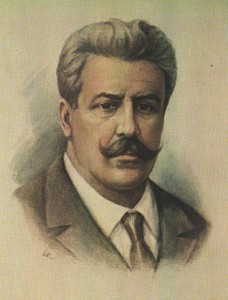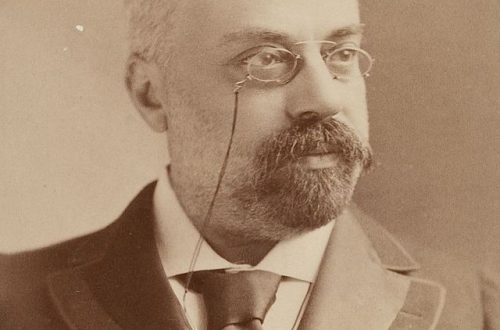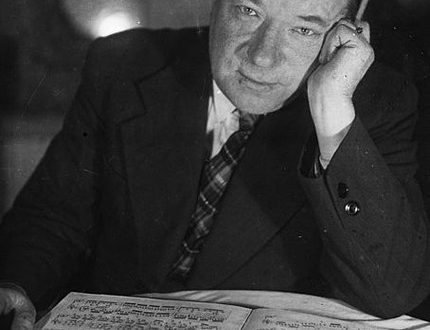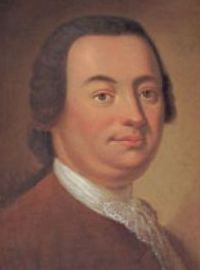
Ruggero Leoncavallo |
Ruggero Leoncavallo

“… My father was the president of the Tribunal, my mother was the daughter of a famous Neapolitan artist. I started studying music in Naples and at the age of 8 I entered the conservatory, at the age of 16 I received a maestro diploma, my professor in composition was Serrao, in piano Chesi. At the final exams they performed my cantata. Then I entered the Faculty of Philology at the University of Bologna to improve my knowledge. I studied with the Italian poet Giosuè Caroucci, and at the age of 20 received my doctorate in literature. Then I went on an artistic tour to Egypt to visit my uncle, who was a musician at the court. The sudden war and the occupation of Egypt by the British confused all my plans. Without a penny in my pocket, dressed in an Arab dress, I barely got out of Egypt and ended up in Marseille, where my wanderings began. I gave music lessons, performed in chantany cafes, wrote songs for soubrettes in music halls, ”R. Leoncavallo wrote about himself.
And finally, good luck. The composer returns to his homeland and is present at the triumph of P. Mascagni’s Rustic Honor. This performance decided the fate of Leoncavallo: he develops a passionate desire to write only opera and only in a new style. The plot immediately came to mind: to reproduce in operatic form that terrible incident from life, which he witnessed at the age of fifteen: his father’s valet fell in love with a wandering actress, whose husband, having caught the lovers, killed both his wife and seducer. It took Leoncavallo only five months to write the libretto and score for Pagliacci. The opera was staged in Milan in 1892 under the direction of the young A. Toscanini. The success was huge. “Pagliacci” appeared immediately on all stages of Europe. The opera began to be performed on the same evening as Mascagni’s Rural Honor, thus marking the triumphal procession of a new trend in art – verismo. The prologue to the opera Pagliacci was proclaimed the Manifesto of Verism. As critics noted, the success of the opera was largely due to the fact that the composer had an outstanding literary talent. The libretto of Pajatsev, written by himself, is very concise, dynamic, contrasting, and the characters’ characters are outlined in relief. And all this bright theatrical action is embodied in memorable, emotionally open melodies. Instead of the usual extended arias, Leoncavallo gives dynamic ariosos of such emotional power that Italian opera did not know before him.
After The Pagliacians, the composer created 19 more operas, but none of them had the same success as the first. Leoncavallo wrote in different genres: he has historical dramas (“Roland from Berlin” – 1904, “Medici” – 1888), dramatic tragedies (“Gypsies”, based on the poem by A. Pushkin – 1912), comic operas (“Maya” – 1910), operettas (“Malbrook” – 1910, “Queen of the Roses” – 1912, “The First Kiss” – post. 1923, etc.) and, of course, verist operas (“La Boheme” – 1896 and “Zaza” – 1900) .
In addition to works of the opera genre, Leoncavallo wrote symphonic works, piano pieces, romances, and songs. But only “Pagliacci” still continue to successfully go on the opera stages of the whole world.
M. Dvorkina





